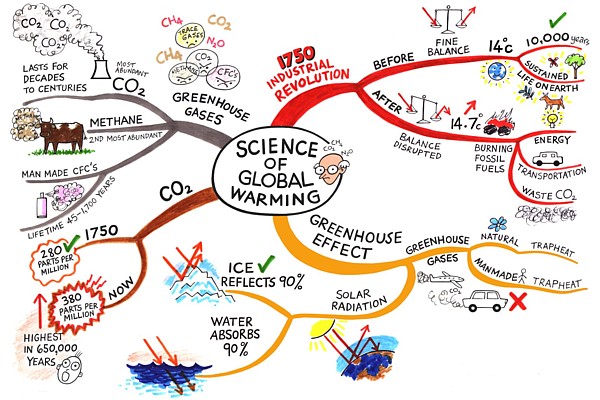Tēmu izklāsts
Fichier condensé du module 1 pour 12heures
Le module est accessible sous l'interface d'Exe-learning, logiciel dédié à l'enseignement à distance. En cliquant sur le lien vous pourrez faire les activités en ligne et voir la correction des questions.
Les documents seront également disponibles dans les sections 1 à 7 en cas de mauvais affichage du fichier Exe-learning sous Moodle.
Module 1 : Global Warming
Pre-listening activity
Watch this picture to try and understand the situation.

Look up for words in the online dictionary
- Šī tēma
Train your vocabulary
Have a look at this document and try and write as many sentences as you can to describe global warming.
If you don't know a word, look it up in the dictionary :

Write as many sentences as you can concerning this diagram.
Then post it here.
Déposez ici votre expression écrite reprise après correction
a video
Watch this video and fill in worksheet N°1
Video Player is loading.This is a modal window.
No compatible source was found for this media.Pick up some information in the video and answer the questions
Listen again to Tony blair's speech and fill in the blanks.
A few landmarks about global warming
Click on the link below for some basic vocabulary and data on global warming :
the code is M1DD
Vocabulary test on global warming :
Using the words you have just learnt, try and fill in the blanks.
Reading comprehension
Read this article and try and fill in worksheet N°2
Global warming: Bleaker and bleaker
New figures show we are still hurtling towards dangerous climate change - at a time when policymakers are running out of ideas
Sometimes a quotation really does say it all. As chief economist of the International Energy Agency, Fatih Birol is not given to overstatement – so his comment in our paper today that the latest figures on greenhouse gas emissions are "the worst news" should be taken seriously. It is not just that the statistics showing another record leap in carbon output – 30.6 gigatonnes of CO2 over 2010 – to make the highest annual total in history are grim. They also come at a point when the old centrist certainties about how to tackle climate change are palpably out of date, and yet no new ideas have come along as replacement.
Over the past half-decade, three global-warming orthodoxies have pertained: the first diplomatic, the second economic, and the third industrial. The diplomatic orthodoxy was this: the best way to negotiate reductions in carbon emissions was the UN. That was the fairest forum, which allowed poorer, smaller countries a platform alongside the old economic behemoths. It could be effective, too: the 1989 Montreal protocol to phase out the use of CFCs and other ozone-harming substances had been described by former UN secretary general Kofi Annan as "perhaps the single most successful international agreement". Even the Kyoto treaty could be seen as a success, if you squinted hard enough. But then came Copenhagen in 2009, which was a flop. More negotiations take place at Durban this December, and already the British and the Americans are warning observers not to get their hopes up.
Economically, the optimists argued that the great recession of 2008-09 would give governments and industrialists a vital breathing space. A contracting world economy would naturally reduce carbon emissions, meantime, public and private sectors could strike a green new deal that would begin a shift towards low-carbon growth. Today's figures give the lie to all that: the link between GDP growth and greenhouse gases remains overwhelming. True, the distribution may have shifted eastwards since the Kyoto protocol – but that is partly because the west increasingly imports its manufactured goods. Finally, industrially, the great bet was that rich countries would wean themselves off fossil fuels and on to a mix of nuclear and renewables. Yet Fukushima has prompted Germany, Italy and Switzerland to mothball their nuclear power projects.
Today's figures, then, show a world still hurtling towards dangerous climate change – at a time when policymakers are out of solutions for slowing this process. "A nice utopia" is how Mr Birol describes the hope of keeping a rise in global temperatures below 2C. And if he thinks that, we should all be alarmed.
- · Editorial The Guardian, Monday 30 May 2011
guardian.co.uk © Guardian News and Media Limited 2011
Fill in the worksheet with information from the text.